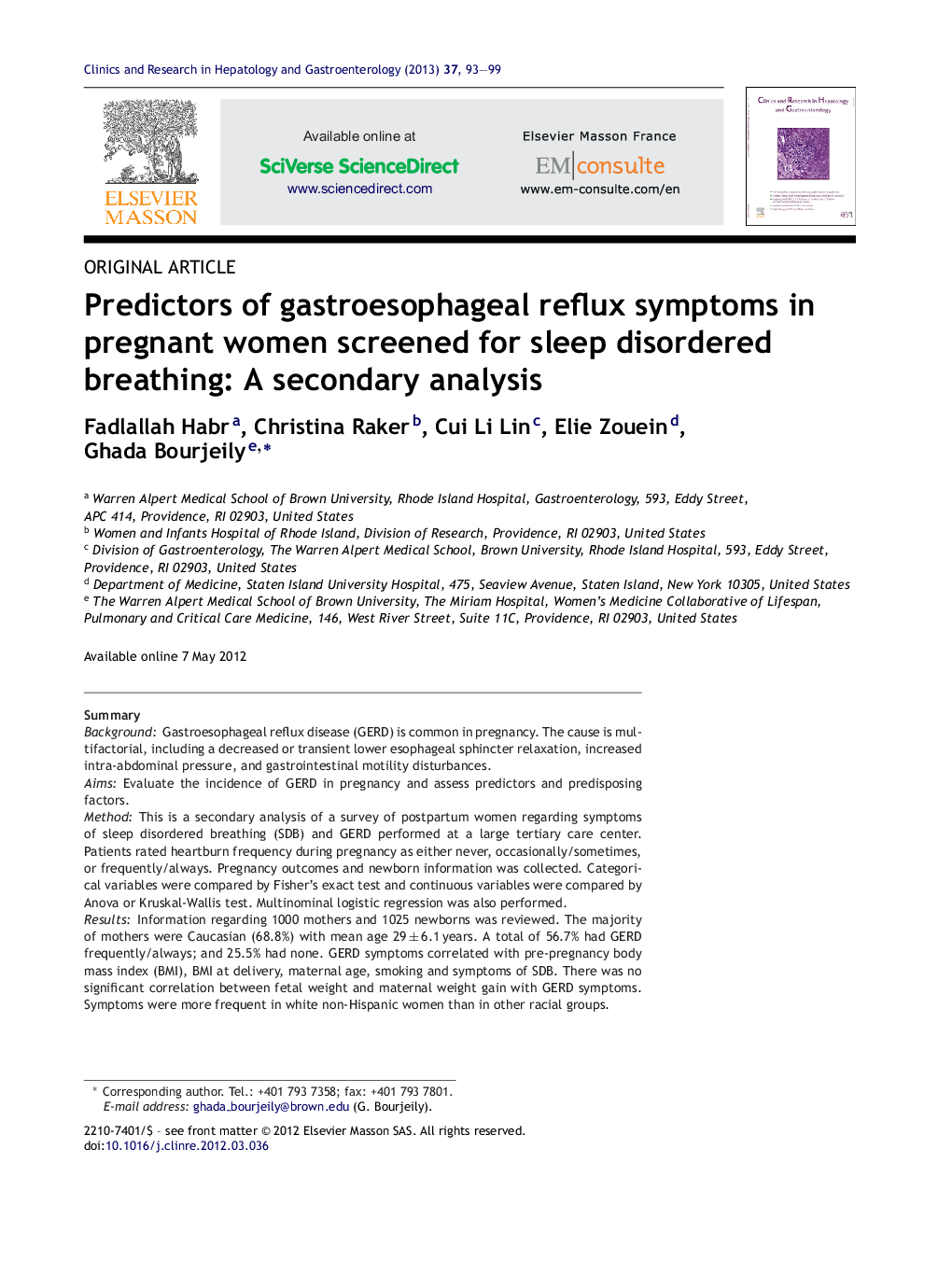| کد مقاله | کد نشریه | سال انتشار | مقاله انگلیسی | نسخه تمام متن |
|---|---|---|---|---|
| 3286766 | 1209310 | 2013 | 7 صفحه PDF | دانلود رایگان |

SummaryBackgroundGastroesophageal reflux disease (GERD) is common in pregnancy. The cause is multifactorial, including a decreased or transient lower esophageal sphincter relaxation, increased intra-abdominal pressure, and gastrointestinal motility disturbances.AimsEvaluate the incidence of GERD in pregnancy and assess predictors and predisposing factors.MethodThis is a secondary analysis of a survey of postpartum women regarding symptoms of sleep disordered breathing (SDB) and GERD performed at a large tertiary care center. Patients rated heartburn frequency during pregnancy as either never, occasionally/sometimes, or frequently/always. Pregnancy outcomes and newborn information was collected. Categorical variables were compared by Fisher's exact test and continuous variables were compared by Anova or Kruskal-Wallis test. Multinominal logistic regression was also performed.ResultsInformation regarding 1000 mothers and 1025 newborns was reviewed. The majority of mothers were Caucasian (68.8%) with mean age 29 ± 6.1 years. A total of 56.7% had GERD frequently/always; and 25.5% had none. GERD symptoms correlated with pre-pregnancy body mass index (BMI), BMI at delivery, maternal age, smoking and symptoms of SDB. There was no significant correlation between fetal weight and maternal weight gain with GERD symptoms. Symptoms were more frequent in white non-Hispanic women than in other racial groups.ConclusionsThis study suggests that GERD symptoms correlate with pre-pregnancy BMI and BMI at delivery, but not with the amount of weight gain during pregnancy. Maternal age, smoking, race, and SDB are also associated with GERD. Interestingly, fetal weight/uterine size did not seem predictive of developing GERD in pregnancy.
Journal: Clinics and Research in Hepatology and Gastroenterology - Volume 37, Issue 1, February 2013, Pages 93–99